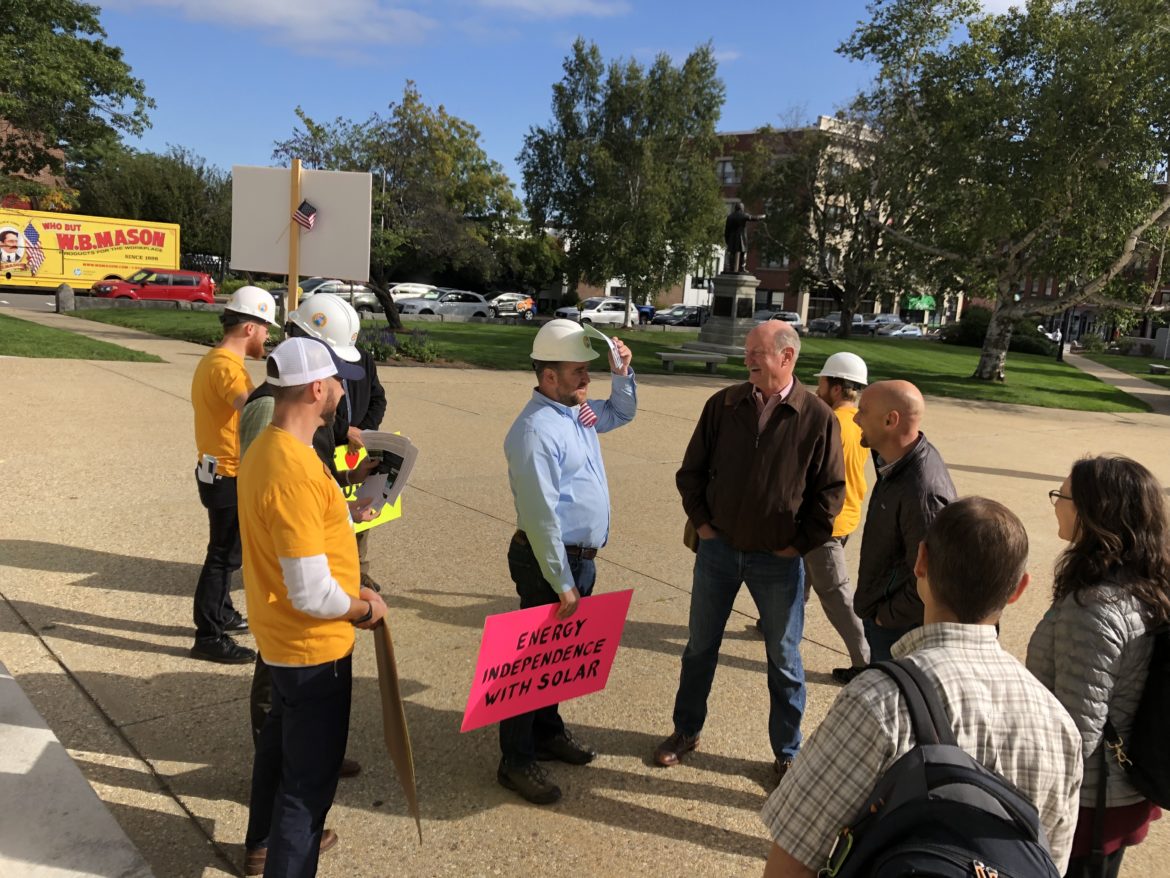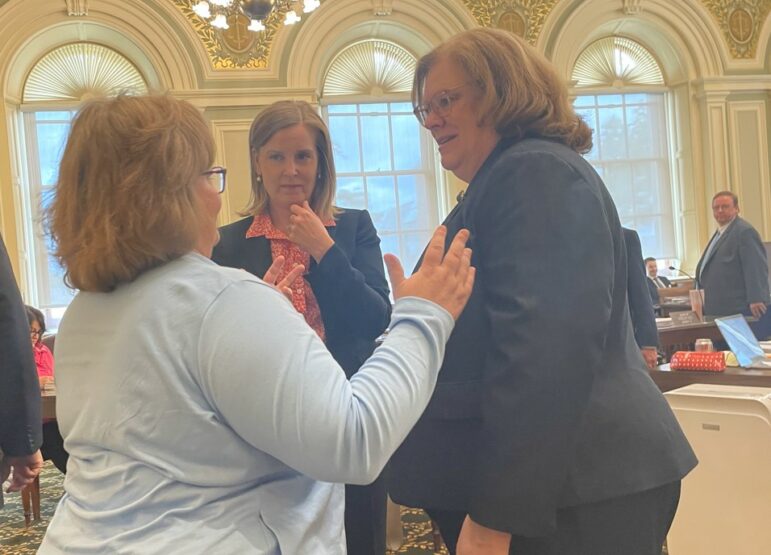UPDATED with correction below
By PAULA TRACY, InDepthNH.org
CONCORD – It was a good day for Republican Gov. Chris Sununu and a bad one for loggers as the Democratically controlled House of Representatives was unable to override a bill to support biomass legislation.
House Bill 183 would have helped loggers, woodlot owners, wood products truckers, logging equipment manufacturers and six now-idled biomass facilities, which make electricity from low-grade wood.
HB 183 would have also established a committee to study the applications of microgrids and changes in law necessary to allow for microgrids in the electrical supply.
It was close.
The House voted 251-132 to override the veto, just four votes short of the necessary two-thirds majority for an override.
The House also voted 248-132 to sustain the governor’s veto on HB 365 relative to net energy metering limits for customer generators.
Jasen Stock of the New Hampshire Timberland Owners Association said the vote on HB 183 represented the end to efforts to help breathe life into the biomass plants and would mean that some of the more than 100 wood products workers watching from the gallery and others who were not there, will now be looking for new employment.
Supporters said the bill supports over 900 jobs and creates more than $254 million of annual economic activity in the state, particularly in the rural and northern parts of the state. The plants are located in Whitefield, Bridgewater, Springfield, Alexandria, Tamworth, and Bethlehem.
The governor and all but 21 Republicans on the House side, opposed the measure during the past session claiming that it would increase electricity costs because it forces a subsidy of biomass energy.
State Rep. Jeanine Notter, R-Merrimack, said since the 1980s, the biomass plants have taken $2 billion in subsidies and passing this measure would be in addition to that.
She said they have never been profitable and the electricity produced is more than twice as expensive, and because the plants are owned by out-of-state and foreign owners “the profits will be sucked out of America.”
Gov. Sununu was pleased. “I would like to thank the House for standing with ratepayers and sustaining my veto of HB 183.
“This bill would have cost New Hampshire ratepayers approximately $20M a year over the next three years, picked winners and losers in a competitive energy market, and would have harmed our most vulnerable citizens for the benefit of a few.”
Republican state Rep. Erin Tapper Hennessey of Littleton, whose district includes the biomass plant in Bethlehem, noted that last year, the legislature overrode the governor’s veto on a similar measure to protect this industry. She said the impacts of allowing the veto to be sustained would extend to forest management and tourism.
Hennessey said the plants provide a critical market for low-grade wood, impacts wood lot owners and local restaurants that serve the loggers and foresters throughout the day. She said in the southern part of the state it helps logging equipment dealers and loggers there as well.
“There is a cost savings,” she said by keeping the biomass plants operational. If the plant closes and stays closed we will pay more, she said.
“This is not a partisan bill,” she stressed. “The health of our forests is at stake.”
Asked what was next for the biomass industry, Jasen Stock responded, “Nothing. It’s over.”
Sununu issued the following statement after the House voted to sustain his veto of HB 365, relative to net energy metering limits for customer generators.
“This was the wrong bill for New Hampshire that would have only benefited large solar developers, not seniors and those on fixed incomes, and I look forward to introducing common sense energy legislation next session,” Sununu said.
House Republican Leader Dick Hinch, R-Merrimack released the following statement after the House completed votes on HB365 and HB183.
“We believe providing a level playing field in the energy market will provide the best outcome for ratepayers. The votes today were not in favor or opposition of specific industries, but government mandates that artificially raise the cost of electricity and end up hurting low and fixed income citizens the most,” Hinch said.
CORRECTION: An earlier version of the story said Eversource opposed the biomass bill. Eversource spokesman William Hinkle said Eversource took no position on the bill.





